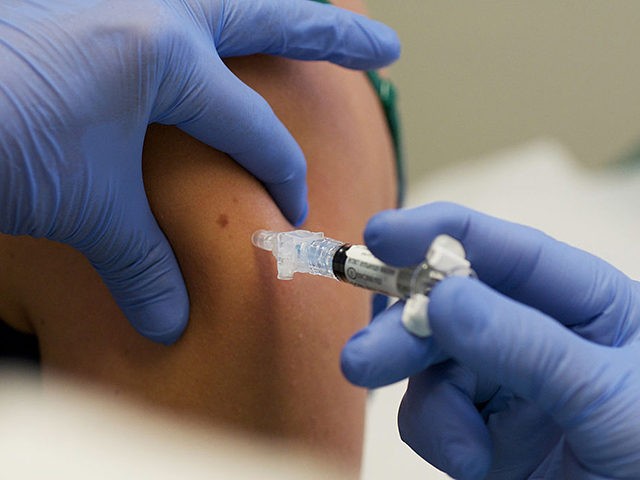The number of Americans willing to take a vaccine for the novel coronavirus has increased in the last two months, a Kaiser Family Foundation poll released Tuesday showed.
The survey found 71 percent of Americans now say they will “definitely” or “probably” get a coronavirus vaccine “if it was determined to be safe by scientists and available for free to everyone who wanted it” — up from the 63 percent who said the same in September.
Of those, 41 percent said they would “definitely get it,” followed by 30 percent who said they would “probably get it.” Twelve percent said they would “probably not get it,” and 15 percent said they would “definitely not get it.”
Political leaders, such as Gov. Andrew Cuomo (D-NY), have emphasized equitable distribution of the vaccine, prioritizing vulnerable groups. Two-thirds of the public believe the vaccine will be widely distributed in such a way, although “about half (48%) of Black adults say they are not confident that the development of a COVID-19 [Chinese coronavirus] vaccine is taking the needs of Black people into account, and over a third (36%) of Hispanic adults say the same about the needs of Hispanic people.”
Over a quarter of Americans, or 27 percent, still say they would “probably or definitely would not” get a vaccination under the same criteria — if it were both free and deemed safe. Republicans remain the most skeptical, with 42 percent expressing hesitancy. Thirty-five percent of black adults also signaled that they would not get vaccinated. Nonetheless, the willingness to get vaccinated increased for both Democrats — jumping from 77 percent to 86 percent — and Republicans — 47 percent to 56 percent — since September.
Per the survey’s findings:
Among those who are hesitant to get a COVID-19 vaccine, the main reasons are worries about possible side effects (59% cite this as a major reason), lack of trust in the government to ensure the vaccines’ safety and effectiveness (55%), concerns that the vaccine is too new (53%), and concerns over the role of politics in the development process (51%). About half of Black adults who say they probably or definitely won’t get vaccinated cite as major reasons that they don’t trust vaccines in general (47%) or that they are worried they may get COVID-19 from the vaccine (50%), suggesting that messages combatting particular types of misinformation may be especially important for increasing vaccine confidence among this group.
Overall, however, willingness to get the vaccination has increased among ethnic groups, the survey found:
Looking across racial and ethnic groups, there has been an increase in vaccine willingness among Black, Hispanic, and White adults alike. The change is perhaps most dramatic among Black adults, among whom willingness to get vaccinated increased from 50% in September to 62% in December. While Black adults were about evenly split in September on whether or not they would get a COVID-19 vaccine that was free and determined to be safe by scientists, they are now almost twice as likely to say they would get vaccinated as to say they would not (62% vs. 35%).
About a third expressed that they would get the vaccine “as soon as possible,” while 39 percent indicated that they will wait and see how it works out for others.
Last week, the Food and Drug Administration (FDA) approved Pfizer’s vaccine for emergency use, with distributions and vaccinations for frontline workers beginning this week.
A New York critical care nurse, Sandra Lindsey, reportedly became the first person in the U.S. to receive the Pfizer vaccine outside of trials following the FDA’s Friday approval:

COMMENTS
Please let us know if you're having issues with commenting.